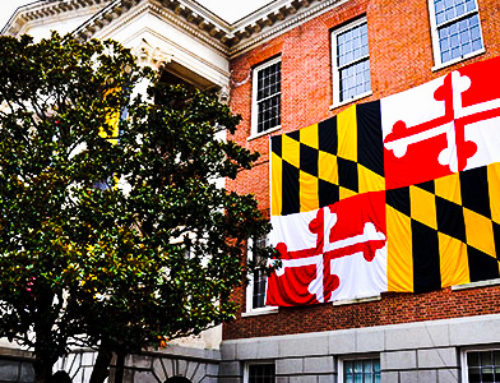View by Topic
Recent Articles
-
Congress Blocks California’s Gasoline Car BanSaturday, May 31st, 2025
-
EPA Will Keep Current Limits for “Forever Chemicals” in Drinking WaterSaturday, May 24th, 2025
-
Court Indefinitely Pauses SEC Climate Rule LitigationSaturday, May 17th, 2025
-
Maryland is About to Regulate Mold But is the Cart Before the HorseSaturday, May 10th, 2025
View by Month/Year
“Green Building Law Update” Headlines
Recent Articles & News from
Stuart Kaplow’s blog
at GreenBuildingLawUpdate.com
- Congress Blocks California’s Gasoline Car Ban: A Legal and Policy Analysis June 1, 2025
- EPA Will Keep Current Limits for “Forever Chemicals” in Drinking Water May 25, 2025
- Court Indefinitely Pauses SEC Climate Rule Litigation May 18, 2025
- Maryland is About to Regulate Mold: But is the Cart Before the Horse? May 11, 2025
Subscribe to the Green Building Law Update!
Stuart Kaplow brings his expertise and extensive experience to the table with his unique digital publication, "Green Building Law Update". Subscribers receive regular updates to keep them informed about important issues surrounding Environmental Law, Green Building & Real Estate Law, as well as the emerging demand for Environmental Social Governance (ESG).
Get fresh content through the lense of Stuart Kaplow's cutting-edge expertise, innovative commentary and insider perspective. Don't miss another issue! Subscribe below.
Landlords Win Ability To Enforce Use Clauses, Even In Bankruptcy
In a significant decision for shopping center landlords, the 4th Circuit U.S. Court of Appeals has ruled for the 1st time that the Bankruptcy Court may not modify a lease, by ignoring the use restrictions in the original written agreement, when approving an assignment of that lease by a bankrupt tenant.
Trak Auto, a retailer of auto parts and accessories that once operated 196 stores in Maryland and nine other states filed a petition under Chapter 11 of the Bankruptcy Code. As part of its effort to reorganize, Trak Auto sought to assign certain of its leases of retail space where stores had been closed. One of these leases, at the West Town Center shopping center, contained the explicit use restriction limiting “permitted uses” to the “sale at retail of automobile parts and accessories and such other items as are customarily sold by Tenant at its other Trak Auto stores.”
Trak Auto advertised the availability of the West Town lease and the high bidder was A&E Stores, a discount family apparel merchandiser.
West Town took the position the use provision was enforceable. But the Bankruptcy Court permitted the assignment, concluding that the lease’s use provision amounted to anti-assignment provisions that are prohibited by the Bankruptcy Code, and ruling there was not sufficient evidence that the assignment would disrupt its shopping center’s tenant mix.
The 4th Circuit U.S. Court of Appeals ruled, In re: Trak Auto Corporation v. West Town Center, LLC, that the Bankruptcy Court erred in permitting Trak Auto to assign its lease to an apparel merchandiser that would not honor the use restriction.
In a major victory for the shopping center industry, the appellate court resolved the conflict between two provisions of the Bankruptcy Code dealing with the assignment of a lease by a debtor. Section 365(f)(1) generally allows a debtor to assign its lease notwithstanding a provision restricting assignment. Section 365(b)(3)(c) specifically requires a debtor-tenant in a shopping center to assign its lease subject to any provision restricting use of the premises. On appeal, the court held the more specific Code section, the 2nd of the two sections, controlled and that the lease assignment must fail.
The court reasoned its decision to block Trak Auto’s lease assignment is not an attempt to water down one of the important purposes of Chapter 11, that is to give business debtors the opportunity to reorganize, revive their operations, and continue in existence. “Shopping center leases are in a special category, however, because Congress has made it more difficult for debtor-tenants to assign these leases in Chapter 11. This special protection for shopping center landlords, as spelled out in Section 365(b)(3)(c),” dictates the result in this case and alters the longstanding practice of free assignment of leases by bankrupt tenants.









